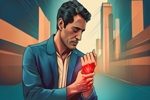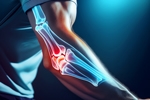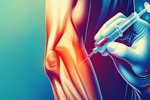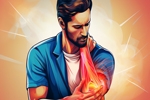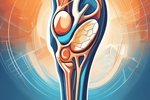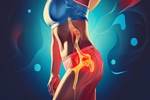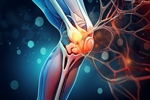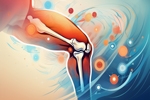Home »
Blog » Sports Medicine
| Stem Cell, PRP, Acupuncture in Queens & Long Island, New York
Sports Medicine | Stem Cell, PRP, Acupuncture in Queens & Long Island, New York
Wrist pain can stem from injuries, overuse, or chronic conditions like arthritis and carpal tunnel syndrome. Learn the most common causes, symptoms, treatment options, and prevention tips to protect your hands and wrists from long-term damage.
Read more
Tennis elbow and golfer’s elbow are overuse injuries that cause pain and inflammation in the tendons around the elbow. This guide explores their causes, symptoms, treatment options, and how to get back to your sport without permanent damage.
Read more
Cortisone injections offer fast-acting relief for elbow pain caused by conditions like tennis or golfer’s elbow. By reducing inflammation directly at the source, they can improve mobility and restore function. Learn how these injections work, when they're recommended, and how they compare to other interventional treatments like PRP and ultrasound-guided therapies.
Read more
Elbow pain can be caused by a variety of factors, including overuse, injury, and medical conditions like tennis elbow and golfer's elbow. Whether from repetitive motions, sports activities, or underlying conditions, understanding the root cause is key to effective treatment. Learn about common causes, symptoms, and how interventional pain management techniques like PRP therapy and stem cell injections can help relieve pain and restore elbow function.
Read more
Hip osteoarthritis is a degenerative joint condition that causes hip pain, stiffness, and reduced mobility. Learn about symptoms, causes, and the latest interventional treatments that can help you manage hip OA and avoid surgery.
Read more
Hip pain can significantly impact daily life, making movement difficult and reducing overall quality of life. Whether caused by arthritis, bursitis, fractures, or muscle strains, identifying the root cause is key to effective treatment. At Precision Pain Care and Rehabilitation, we offer cutting-edge interventional treatments such as nerve blocks, PRP therapy, and spinal cord stimulation to alleviate pain and restore mobility. Learn more about the causes, symptoms, and best treatment options to manage hip pain effectively.
Read more
Struggling with persistent shoulder pain? PRP therapy offers a cutting-edge, non-surgical solution that harnesses the body’s natural healing abilities. By injecting concentrated platelets into the affected area, PRP stimulates tissue repair, reduces inflammation, and enhances joint function. Ideal for conditions like rotator cuff injuries, tendonitis, and osteoarthritis, PRP therapy is a safe and effective alternative to surgery. Learn how this innovative treatment can help you regain mobility and live pain-free.
Read more
Cortisone injections offer effective relief for shoulder pain by reducing inflammation and improving joint mobility. Whether caused by arthritis, bursitis, rotator cuff injuries, or impingement, these injections provide targeted pain management. Learn how they work, what to expect during the procedure, and alternative treatment options to help restore shoulder function.
Read more
Radiofrequency neurotomy of the genicular nerves is a minimally invasive procedure designed to reduce chronic knee pain by disrupting pain signals. Using fluoroscopic guidance, a physician injects local anesthetic and applies radiofrequency energy to target the genicular nerves. This treatment is ideal for patients with knee osteoarthritis who cannot undergo or prefer to avoid joint replacement surgery. Many patients experience significant pain relief and improved mobility, with studies showing better outcomes compared to corticosteroid injections. Radiofrequency neurotomy offers a promising alternative for long-term knee pain management.
Read more
Knee osteoarthritis is a progressive condition that causes pain, stiffness, and swelling, affecting mobility and daily activities. While it worsens over time, early intervention with physical therapy, weight management, and targeted exercises can slow progression and improve joint function. Non-surgical treatments, such as PRP therapy, bracing, and pain management techniques, can help relieve symptoms. In severe cases, surgical options like osteotomy or total knee replacement may be necessary. Understanding risk factors, symptoms, and treatment options is key to maintaining mobility and reducing discomfort.
Read more
Love this Post? Spread the World





